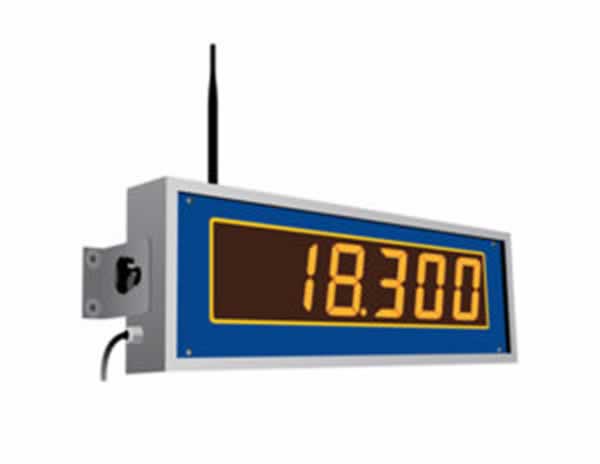Load cells are used to measure the load. As a sensor, the load cell measures and converts the force (the load) into an electrical signal. All electronic scales have load cells for displaying the weight, either in mass or torque units. The load cell, also known as a transducer, is a device that converts energy from one form to another using signals. In a variety of industries, a load cell can be installed on various testing machines, industrial scales and flow meters to measure the force. This is crucial for effective and safe processes.
Load cells are classified according to their output signal, which is generated by the measured load. There are basically three classifications or types of load cells available. We explain them below.
1. Hydraulic load cells
The hydraulic load cell is used to measure water, mainly in tanks. The load cell is filled with oil and measures the weight as a change in pressure of a liquid. The pressure of the liquid increases due to an increase in force. As there are no electrical components in this type, the hydraulic load cell is ideal for hazardous conditions. An outstanding feature of the hydraulic load cell is that it is protected against lightning strikes and electric shocks. Because it uses expensive technology, it's an expensive option compared to the other load cell types.
2. Pneumatic load cells
The pneumatic load cell is ideal for measuring lower weights with greater accuracy and measures the weight as a change in pressure. It is designed to automatically manage the balance pressure. The pressurized fluid in a pneumatic load cell is a gas, often air. Pneumatic load cells are explosion-proof and can handle temperature changes. Pneumatic load cells are ideal for real-time accuracy and are used in the medical industry to deliver intravenous fluids.
3. DMS load cells
This type of load cell is used to measure the pressure exerted on a support beam. A signal is sent to the switching unit while the voltage change is measured on the support beam. This indicates the weight measurement, which is determined by how much force is exerted on the support beam. Strain gauge load cells have excellent fatigue properties and precise linear measurements. They are not affected by temperature changes and have a long service life. Since they rely on excitation voltage for operation, they are not suitable for areas with limited power supply.

Load cells for the right application
Load cells have been developed for certain applications. They are used in a variety of industries. Here are some of the ways that load cells ensure effective measurement when needed in an industry.
manufacturing industry
A variety of products are measured with testing machines with calibrated load cells. These machines enable safe assembly and testing. Manufacturers rely on a high degree of accuracy when measuring their products. From checking the durability of the wiring harness to filling the packaging, load cells ensure that the end product meets the manufacturing standards of this industry. With industry-leading load cell weighing devices, they can be easily damaged, although they are reliable. Care must be taken to keep damage to these devices as low as possible.
Medical industry
The healthcare industry is heavily dependent on measuring devices. From fitness scales to medical test equipment to monitoring fluid levels for surgical and dialysis-related purposes, the medical world depends on extreme accuracy. Doctors and nurses are constantly using different test devices to best manage their health needs. It is important that these machines are of the highest quality and the load cells are correctly calibrated.
Aerospace Industry
The aerospace industry relies on load cells to perform applications such as autopilot control, aircraft assembly, brake tests, tire pressure control, and engine thrusts. Load cells are also used for fatigue tests.
Automotive industry
Load cells are used from crash tests to fuel tank assembly to support the automotive designer in the production of high-quality vehicles. Load cells used in this industry have been developed to take into account functions such as steering, mechanical overload protection and suspension. Both the hydraulic and pneumatic load cell systems are ideal for the automotive industry. They are compact, robust, without moving parts and precise with a wide measuring range.
Conclusion
Regardless of which industry you are in, there is a load cell measuring system that is tailored to your application requirements. If it is a load cell testing machine that you are looking for, contact the professionals to help you buy the right machine for you. The world as we know it today would be lost without measuring instruments. The introduction of load cells has changed the way we take measurements from mechanical to electronic scales. From the complicated weighing of bird chicks for research purposes to the seven-post shaker for setting up racing cars, load cells are a critical part of the scale as we know it today. Where can it improve your functioning?




